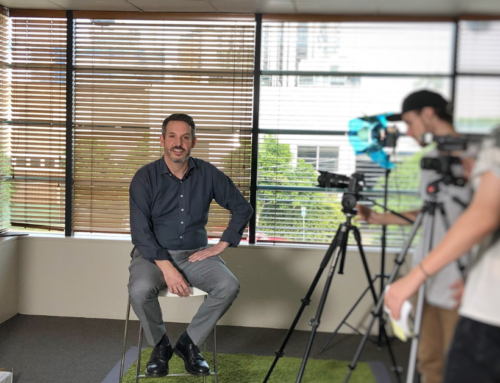Blog in partnership with Sausage Machine.
In recent weeks it has become clear that the air travel customer experience is badly broken. A messy mix of flight cancellations, lost bags and major delays have us wondering what has gone so wrong. This issue was recently investigated on ABC’s 4 Corners program. We all know people caught up in this.
What has happened in the airline industry to see such a drop off in employee and customer experience? What is the impact on leaders? How much did the loss of key people and corporate knowledge contribute to this? What can organisations in other industries do in the knowledge management space to protect and strengthen their brand?
Our hypothesis… Even before the pandemic, organisations struggled to manage their corporate knowledge. Too often they relied on a handful of key individuals who ‘knew how things were done’ to rescue them from potential knowledge disasters.
Since then, the pandemic has disrupted traditional working rhythms, significantly increasing the risk of corporate knowledge loss. The flow on impact for customers and employees must not be ignored. It creates a massive challenge for leaders and threatens organisational performance.
So, how can we respond?
Pre-Pandemic Knowledge Management
Cast your mind back a few years. Organisations have struggled with knowledge management for many years, and all too often leaders and teams did not have the information they needed at their fingertips.
Challenging Factors
In the pre-pandemic world several factors hindered efforts to capture and share critical business knowledge:
- Knowledge held in functional silos
- Limited documentation of processes
- Unclear ownership of knowledge repositories
- Poor use of technology
- Individuals relying on workarounds
Helpful Factors
At the same time, different dynamics in the ‘psychological contract’ of employment, helped mitigate the risks associated with corporate knowledge loss:
- Long-tenure employees who knew ‘how things work’
- A ‘job for life’ mindset, accompanied by a sense of obligation, and a deep commitment to both the role and the organisation
- Working in an office setting where if you didn’t know something, you could simply turn to someone nearby who could point you in the right direction
- Relatively stable forms of employment
- Relatively low levels of turnover, which was typically planned rather than reactive
On balance, the risks of corporate knowledge loss were generally mitigated through a reliance on a small group of ‘usual suspects’ who kept the business running.
Post-Pandemic Knowledge Management
The last two and a half years have seen unprecedented changes in how we work. Examples include:
- Remote and flexible work, rather than attending an office 9-5
- ‘Cost-cutting’ initiatives, that emerged to help organisations survive
- The ‘Great Resignation’, as workers re-focused their priorities and goals
- Short-termism, as people’s focus narrowed to surviving from one day to the next
These factors exacerbated the cumulative risk of corporate knowledge loss. This flows directly onto the experience of customers, employees and leaders.
Implications
These trends raise several important questions about knowledge management.
- Does greater employee turnover lead to corporate amnesia?
- Whose responsibility is to create and maintain knowledge bases?
- Are organisations committed to building and maintaining corporate knowledge repositories over time?
- What happens when key individuals disappear and aren’t around to save the day?
- How does this impact the experience of customers, employees and leaders?
The Cumulative Impact on Employee Experience
As the competition for capable people intensifies, an organisation’s employee experience becomes paramount. If people can’t access critical information, they will find it more difficult to deliver value and reinforce purpose.
In the current climate employees will leave if things get too hard. They know they have options and they’re not going to wait around.
The Flow on Impact to Customer Experience
Many industries are struggling to maintain a viable workforce: aged care, the Arts, education, and the motor industry to name a few. Leaders know that it takes positive, engaged employees to deliver a positive experience for customers. If employees’ experience is sub-optimal, their ability and willingness to deliver against a desired customer experience is also diminished.
Corporate knowledge also impacts our ability to consistently deliver on our desired customer experience. Customers are disappointed when we fail to meet their expectations. When inconsistency creeps in, our brand reputation will quickly unravel. This threatens the entire organisation.
The Impacts on Leaders
The ‘perfect storm’ causing a knowledge drain on corporations is making this harder than ever, and has many leaders themselves asking whether they want to stay and fight, or look for greener pastures elsewhere.
So what can organisations do to stop the bleeding and capture critical corporate knowledge in a useful and useable format?
It’s not as simple as investing in the right technology or software. Organisations need to build a ‘knowledge culture’ that exists beyond well-meaning or long-tenure individuals.
Here are 4 tips for organisations seeking to stem the knowledge drain and reinvigorate the experience of their leaders, employees and customers.
- Be clear on the organisation’s purpose that employees connect to, and link the value of ‘knowledge’ to it
- Support leaders to build a ‘knowledge culture’ that encourages people to share knowledge with colleagues in new ways
- Invest in tools that support that culture by making it easy to capture and share business-critical knowledge day to day
- Reward the right behaviours


